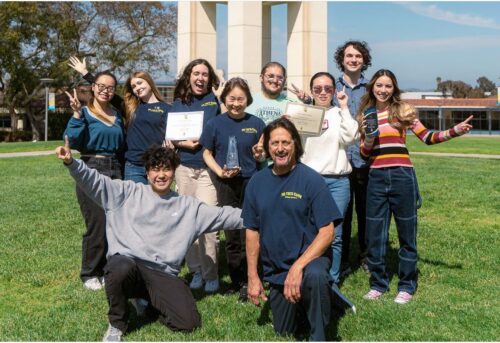Summer is the ideal time for your chapter to start planning its Honors in Action Project. This is an opportunity for you to use real-world problem-solving skills to develop an in-depth, action-oriented project based on your research of a theme of the Honors Study Topic, Transformations: Acknowledging, Assessing, and Achieving Change.
Remember: you are studying your chosen theme as it relates to the overall Honors Study Topic. The overarching question listed for each theme references the topic, Transformations, and can help you focus on both.
The action part of your Honors in Action Project is the culmination of the work you begin this summer. But it all begins with the research.
Academic research can be a rewarding undertaking, but it can be hard to know how to get it right. The advice below was pulled from Competitive Edge videos and outlines how exactly you should conduct academic research.
Why Research?
Learning to conduct research is one of the most crucial skills you develop in college. Regardless of whether you transfer to a four-year college or enter the workforce directly, you’ll need to know how to access, evaluate, and use various forms of information.
This involves critical thinking, which is consistently listed among the attributes employers seek, along with excellent writing and oral communication skills and the ability to work cooperatively in groups — all of which can be gained through participation in an Honors in Action Project.
Critical thinking is defined as “the mental process of actively and skillfully conceptualizing, analyzing, applying, synthesizing, and evaluating information to reach an answer or conclusion.” Essentially, you’re being asked to consider the aspects of an issue that are of vital importance. It’s the first step in your academic research.
Getting Started
Critical thinking begins by selecting and narrowing your topic — in this case, the theme of the Honors Study Topic you wish to explore. Define the boundaries of what you want to examine, and select a part of that topic that can be successfully addressed in a project. Frame your question or questions well; you need to be specific enough to filter out unhelpful information.
Next, you think critically by reading critically. Be sure to use a variety of sources — there’s no substitute for a good academic library. Even if you are looking at a timely topic, good academic books will help you contextualize and ground your research into a larger historical framework. Academic articles will offer a more current take on your research questions.
Overall, be sure to evaluate your sources carefully. In general, there are three types of research sources: primary, secondary, and tertiary. Primary sources are original material — a painting by Monet, letters by Dr. Martin Luther King Jr., notes taken by a clinical psychologist.
Secondary sources are interpretations and evaluations of primary sources. They are not evidence; rather, they are commentary and discussion of evidence — an article critiquing Monet’s painting, a website on Kings writings, a magazine article about the psychological condition.
Tertiary sources consist of information, a distillation, and collection of primary and secondary sources — the ArtStor database, the encyclopedia entry on the Civil Rights Movement, the textbook on clinical psychology.
Be sure to brush up on the difference between academic and non-academic sources. A newspaper or even a TED Talk could be a great resource, but it should be considered a starting point. PTK Catalyst 2018 speaker Amy Cuddy, for instance, has a wonderful TED Talk that gives a glimpse into her work, but she goes into much more detail about her research, analysis, and conclusions in her book.
Types of Academic Sources
An academic source is written by a professional in a given field. It is often edited by the writers’ peers and may take years to publish. Most reputable academic books will be published by academic publishers such as university presses.
Periodicals also make great sources, but you need to know the differences among popular, trade, and scholarly periodicals. Popular sources are meant to inform and/or entertain and include sources like Time, Vogue, Rolling Stone, USA Today, and Psychology Today. While popular periodicals are typically not appropriate for academic or professional research, they may occasionally contain information that is useful when paired with other, more credible sources.
Trade journals provide information and support for a specific trade or field of study. They can provide a good combination of popular and scholarly sources, but use them carefully and sparingly to ensure credibility in your research.
Scholarly journals share research done by academics. They are the most credible because scholars must cite their research sources. To be sure you’re using the most credible sources, look for those that are peer-reviewed.
Try to diversify your sources in terms of who wrote them, when they were written, and what slant they take on your questions.
Online Resources
Approach Internet research with great caution, and ask hard questions about who generated the source and whether it is compelling. That said, you can still find scholarly resources on the Internet.
The Google Scholar search engine searches only for scholarly books and articles. It can lead you to resources such as WorldCat, a free and public catalog of more than a billion items available from more than 10,000 libraries worldwide. It’s even available as a mobile app.
Online databases such as EBSCO, GALE, and JSTOR can connect you with a range of credible academic sources like eBooks, government documents, conference proceedings, and articles from periodicals.
What Now?
As you work through your sources, ask probing questions. Don’t just compile the thoughts of others; put something of yourself into your work. Develop your own argument, and use your sources to bring your argument into the larger academic conversation.
From the moment you begin your research, stay organized. Develop a simple but effective system of recording your sources, and use it consistently. This is where journaling can be especially helpful.
Also, don’t conduct your research in a vacuum. Show drafts to your advisors and peers, and welcome their feedback. You will produce more lively, dynamic work if you work with others during this process.
Finally, have fun with your project! Research doesn’t have to be a grim task. Quality academic research will open new worlds to you and defines the difference between Honors in Action and simply action.
Special thanks to the following current and former Phi Theta Kappa advisors for preparing the Competitive Edge videos on which this post is based: Dr. Ken Kerr, Dr. Liesl Ward Harris, Jeff Edwards, Lisa York, Dr. Sauda Smith, and the late Margo Hamm.




